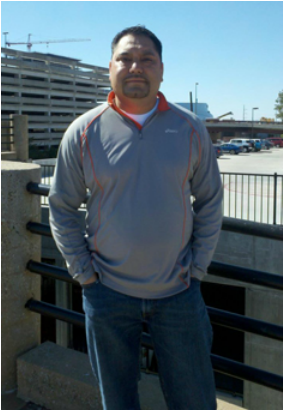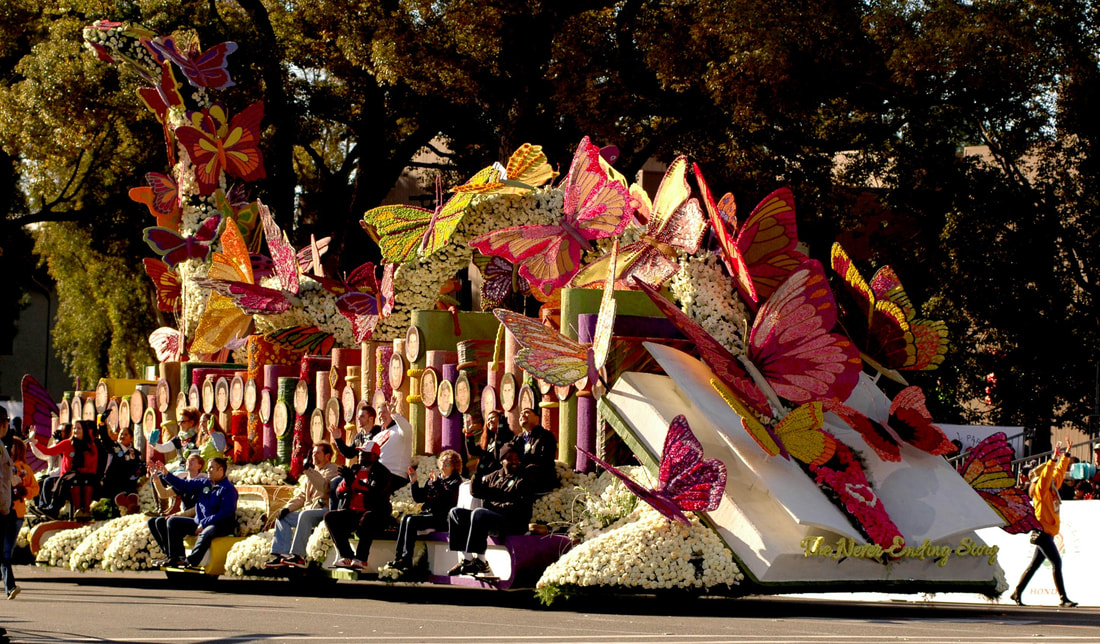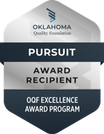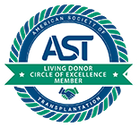Osage Nation Member Honored at the 2015 Rose Parade

Tim Bishop, Osage Nation member and kidney recipient, was honored at the 2015 Tournament of Roses Parade as an organ transplant recipient. Tim was one of 30 float riders on the Donate Life America float during the New Year’s Day parade in Pasadena, Calif.
With a U.S. television audience of millions, Tim not only represented organ, eye and tissue donation in the parade, he served as a representative of Oklahoma and the Osage Nation.
“I am proud of my heritage and proud of the lifesaving transplant I received,” said Tim. He now views himself as a symbol for donation and transplantation.
There are currently more than 123,000 people waiting for lifesaving transplants, so Tim encourages the Native American communities to learn more about organ donation. “I hope after hearing my story, more Native Americans will consider joining the donor registry. I want the Native American communities to be aware of transplantation as an option in healthcare.”
Tim’s Story
At the age of 26, Tim Bishop, of Stilwell, Okla., had his whole life ahead of him. He was young and healthy; he was very athletic, loved bass fishing and playing basketball and golf. Tim had recently gotten married and he and his wife Annmarie, were about to welcome their only child into the world.
On September 11, 1999, the Bishops were excited to meet their daughter, Plizia Marie. That same day was quickly overshadowed because Tim was admitted to the hospital with severe fluid retention.
This wasn't the first hospitalization for Tim. He had battled fluid retention for approximately a year. He remembers “one of the first signs that something was wrong, was the swelling in my ankles. I can remember asking my wife about the swelling.” As Tim became more ill, fluid retention was in his entire body.
“I felt very ill, very tired and had no energy. I was just not myself,” recalls Tim.
So at a time when Tim should have been enjoying his new born baby, he was referred to his current Nephrologist, Dr. Michael D. Coleman Sr., at Cooper Clinic. Dr. Coleman diagnosed Tim with a kidney disease called Nephrotic Syndrome.
Tim and his wife knew very little about his illness so they did their own research to better understand the disease.
The diagnosis caused Tim to become angry. “I couldn't understand why this was happening to me. I had no previous kidney problems.” Along with the anger, he started experiencing signs of depression.
On top of being ill, Tim had a small child at home to care for. Tim finally got to the point where he could not work. He was forced to go on disability, so Annmarie took on the task of providing for the family. Tim stayed home to take care of himself and baby Plizia. His daughter was too young to realize her daddy was sick.
Tim’s disease continued to progress and in 2002, he was put on Peritoneal Dialysis (PD), which is dialysis performed at home. At the same time, Dr. Coleman decided put him on the transplant waiting list for a new kidney.
“When the doctor told me I would need a transplant, I was shocked,” remembers Tim. “I had no previous knowledge of transplantation before my illness.”
Tim continued dialysis for two years while waiting for his lifesaving transplant. “I am a very impatient person,” he explains. “So waiting was very difficult for me.”
“My advice to people on the transplant waiting list is to be patient; your phone call will come.”
Tim’s phone call did eventually come, on October 16, 2004. This was the third phone call he had received saying there was a kidney available for him. The two previous calls resulted in kidneys that were not a match for Tim.
“When I received the third call, I was standing in line to buy my hunting license. The transplant coordinator said you need to go to the hospital right now, we have a kidney for you.”
“I knew this was the one and I felt very excited and overwhelmed.”
So Tim and Annmarie traveled four hours to the hospital. Tim remembers, “We beat the kidney there.” The donated kidney came from a donor in New York and it was practically a perfect match.
Tim went into surgery at six the next morning and had almost immediate results from his transplant. “I felt better, looked better and was up and walking the next day. My appetite had come back.” After the transplant, doctors said Tim could have whatever he wanted to eat, which was a treat since he had been on a restricted diet for almost two years. Tim enjoyed spaghetti and meatballs and a “big glass of cold milk.”
The transplant went so well he was sent home from the hospital after five days. It was kind of scary to the Bishops to leave the hospital so soon considering Tim had just has a major surgery. The drive home was reminiscent of taking your first child home from the hospital. Annmarie drove very carefully. It took six hours for them to get home instead of the four hours it took to get there.
Tim gives accolades to his doctor for such successful transplant, “Dr. Coleman did a great job treating me throughout the transplantation process.”
Tim’s full recovery from his transplant took two months. After that Tim said “I felt freedom; I felt alive again. The gift of life renewed my life.” He was able to play outside with his daughter and go fishing again.
Plizia was 5 years old when Tim received his transplant. She was beginning to play basketball and t-ball and starting school. Tim was now well enough to participate in these major milestones with his daughter.
Even though Tim was so ill, he looks back on that time with some fond memories. “While I was at home on dialysis and at home recovering from transplant, it gave me and my daughter time to connect. Our father-daughter connection was growing. Plizia is now my best friend.”
Tim’s daughter is now 14 years old and she understands the importance of organ donation. Because of donation Plizia and her father are able to play basketball and go fishing together. This last October the Bishop family celebrated the 10 year anniversary of Tim’s transplant.









